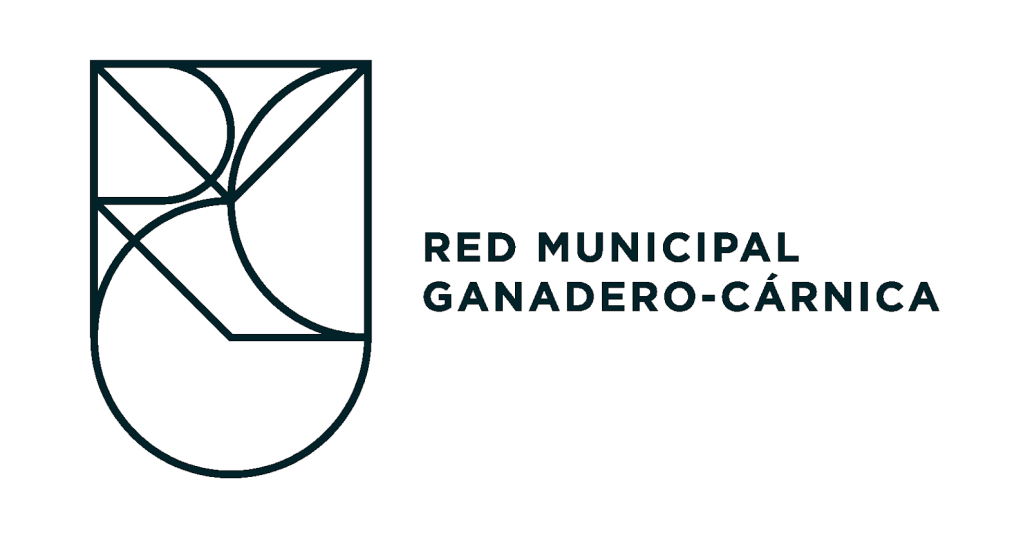The initiative is promoted by the interprofessional organizations ASICI, AVIANZA, INTERCUN, INTEROVIC, INTERPORC and PROVACUNO, in collaboration with the FEMP
The Secretary General for the Demographic Challenge, Francesc Xavier Boya, and the Secretary General of the Spanish Federation of Municipalities and Provinces, Carlos Daniel Casares, participated in the municipal dialogue meeting, along with around twenty mayors and councilors of municipalities adhering to the Grid
January 25, 2023. The Municipal Livestock-Meat Network held the first meeting of mayors and councilors of its member municipalities in Madrid, attended by around twenty officials from municipalities such as Alcarràs (Lleida), Alerre and Binéfar (Huesca), Cabezuela and Cantimpalos ( Segovia), El Viso (Córdoba), Lleida, Tarancón (Cuenca) or Totana (Murcia).
Raúl Muñiz, president of INTEROVIC, and Mª Luz de Santos, Director of INTERCUN, intervened on behalf of the six interprofessional organizations to welcome the municipal officials, and the Secretary General for the Challenge also participated in the dialogue meeting. Demographer of the Ministry for the Ecological Transition and the Demographic Challenge, Francesc Xavier Boya, who has highlighted the role of the industry in rural municipalities such as “strategic to structure the rural environment and a great ally for the depopulation process in territories of our country”; and the Secretary General of the Spanish Federation of Municipalities and Provinces (FEMP), Carlos Daniel Casares, who has conveyed the organization's commitment supported by the collaboration agreement signed in June 2021, highlighting the interest of the initiatives promoted by the network as “vital element to confront the growing trend of depopulation in Spain.”
At the meeting, the lines of work for 2023 were presented and the Constitutive Declaration of the Network, which includes in ten points its founding objectives to develop this initiative as the best instrument to defend and promote the shared interests between the livestock-meat chain and the local entities in which its activities are based.
The Municipal Livestock-Meat Network was born with the impetus of the six interprofessional organizations ASICI, AVIANZA, INTERCUN, INTEROVIC, INTERPORC and PROVACUNO, in collaboration with the FEMP, with the purpose of recognizing the important support of the municipalities in the development of the activity of the chain, and become a platform for dialogue and a space for collaboration between municipalities and the sector, to face common challenges.
The Network already has twenty-five municipalities throughout Spain (Galicia, Cantabria, Aragon, Catalonia, Castilla-La Mancha, Murcia, Extremadura, Castilla y León), and another twenty in the process of joining, seeking synergies to promote the conditions that have allowed the livestock-meat value chain to be one of the most important economic and social drivers of the country for some time and to act as one of the largest backbone agents of rural Spain, especially in those smaller municipalities, thus contributing to combat the growing depopulation in them.

The importance of the livestock-meat chain in the Spanish economy
The positive impact of the livestock-meat chain is also significant at the national level, where it contributes nearly 48,000 million euros to the national GDP and generates 672,000 direct jobs. In addition, the activity mobilizes two million associated jobs that fall into a varied selection of activities such as agricultural production aimed at feeding livestock and professionals in the veterinary, feed, animal health, logistics and transportation, and auxiliary industries sectors.
Livestock activity is carried out on more than 350,000 farms throughout the country, which contribute 16.5 billion euros to Final Agricultural Production, according to data from the Ministry of Agriculture, Fisheries and Food. In addition, the Spanish meat industry put a total of 7.7 million tons of meat and 1.5 million tons of processed meats on the markets in 2021, worth 31,727 million euros. This production has ensured Spain's food sovereignty with regard to meat and has also allowed 3.46 million tons of meat and various processed products to be exported to markets around the world. These transactions have reached a value of 9,107 million euros, with a growth of 5% in foreign turnover and volume compared to the previous year's figures. These figures have a special strategic relevance at a time when international trade is suffering a strong decline and where the livestock-meat chain has emerged as a guarantee to maintain the positive balance of the balance of payments.
How to be part of the Network
Municipalities that wish to be part of the Municipal Livestock-Meat Network must approve an institutional declaration in favor of the meat-livestock chain and accompany this decision with a communicative action. All the necessary information about the process, the purposes of the Municipal Network and the contact form are available in the platform website.
The Municipal Network for the livestock-meat chain intends to be a reflection of the great diversity that exists in Spain. For this reason, it intends that in the medium term among its members there will be towns from all geographical areas of the country and that they will be governed by political forces of all stripes. The initiative also takes care of demographic representativeness with the participation of municipalities of all sizes, including those with less than 5,000 inhabitants, where the positive impact of the activity is even more notable.
More information:
José Manuel Alvarez – Municipal Livestock-Meat Network
646 65 28 46 – communications@gmail.com

